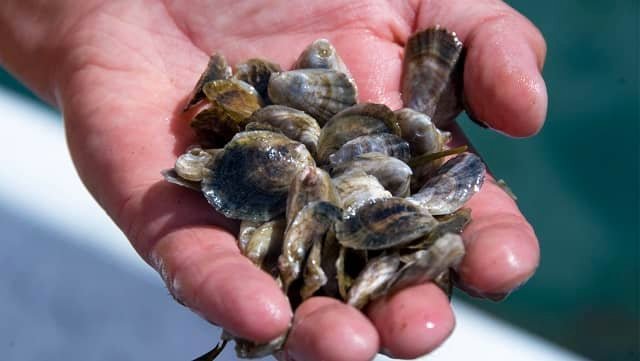USA – A team of researchers, aquaculture production specialists and educators in Maine, Rhode Island and New Hampshire will be working to help transform the sea urchin fishery by supporting green sea urchin aquaculture efforts in New England.
The team — which includes Steve Eddy and Luz Kogson at the University of Maine, Dana Morse with Maine Sea Grant, project lead Coleen Suckling at the University of Rhode Island and Larry Harris at the University of New Hampshire — received a $100,000 grant from the U.S. Department of Agriculture’s Northeast Regional Aquaculture Center to improve hatchery production of the green sea urchin and engage prospective urchin farmers on grow out possibilities in the Gulf of Maine and coastal northern New England.
“There is a strong international demand for sea urchins, mostly driven by the Asian market, yet this demand is poorly met by North American suppliers, largely due to declining natural stocks and increased stock regulation,” says Suckling.
Maine’s sea urchin fishery, which was primarily wild harvest, was worth $35.6 million with 34 million pounds landed in 1995, according to Maine’s Department of Marine Resources. Then the stocks collapsed, and the wild harvest fishery did not recover to the same level. Over the past five years, the stocks have been fairly stable, says Eddy, director of UMaine’s Center for Cooperative Aquaculture Research. In 2019, the fishery was worth $5.8 million, and 1.7 million pounds were landed.
“There is substantial potential for aquaculture growth of urchins, and interest to grow sea urchins in New England is expanding, which our new project will help support by providing seed and technical advice at no cost,” says Suckling.
Recent advances in technology, techniques and feeds at urchin farms around the world will enable the team to study how to adapt these advances to local hatchery and nursery culture.
“Urchin farming has generated a lot of interest in Maine, but nobody’s really nailed it down yet to where urchins are a profitable crop to grow,” says Morse, a Maine Sea Grant marine extension associate based at the Darling Marine Center. “To allow us to take advantage of the creativity and ingenuity that prospective growers have — our best chance for developing economically viable systems — they need access to seed stock, and that’s where we are starting.”
The research team also will engage regulatory agencies and prospective urchin producers in the Northeast to communicate developments in the availability of urchin seed stock and understand the interests and needs for producers and regulators. In addition, growth trials at Maine aquaculture sites will be conducted to track growth and survival, assess different feeds, and understand husbandry considerations.
Stay Always Informed
Join our communities to instantly receive the most important news, reports, and analysis from the aquaculture industry.
“We think Maine is the perfect place to grow sea urchins and we’re hoping some of our neighbor states to the south will give it a try as well,” says Eddy. “This project should help us produce more urchin seed than ever before and help us encourage new sea urchin farmers to try it. We already have several growers we are working with, and we’re looking to sign up more. We believe sea urchins are a natural fit with kelp aquaculture and oyster farms.”
Aquaculturists interested in learning more should contact Suckling, coleensuckling@uri.edu, or Luz Kogson, luz.kogson@maine.edu to receive project updates and be added to the list of those seeking urchin seed.
Source: University of Maine
Editor at the digital magazine AquaHoy. He holds a degree in Aquaculture Biology from the National University of Santa (UNS) and a Master’s degree in Science and Innovation Management from the Polytechnic University of Valencia, with postgraduate diplomas in Business Innovation and Innovation Management. He possesses extensive experience in the aquaculture and fisheries sector, having led the Fisheries Innovation Unit of the National Program for Innovation in Fisheries and Aquaculture (PNIPA). He has served as a senior consultant in technology watch, an innovation project formulator and advisor, and a lecturer at UNS. He is a member of the Peruvian College of Biologists and was recognized by the World Aquaculture Society (WAS) in 2016 for his contribution to aquaculture.






